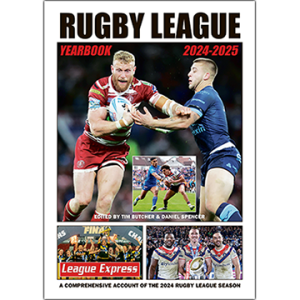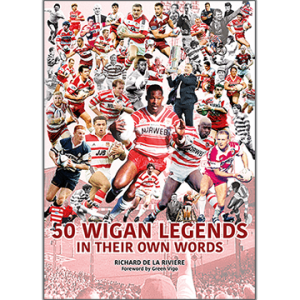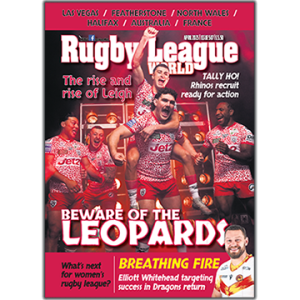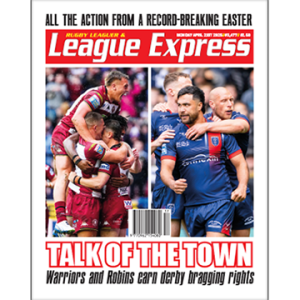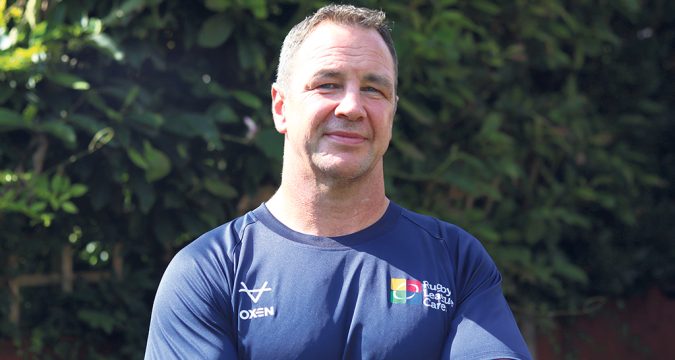
Adrian Morley is bringing the same high levels of commitment he showed as a player to his new role working with RL Cares.
FEW rugby league players command the level of respect afforded to the man capped by Great Britain and England more than any other: Adrian Morley.
Throughout his illustrious playing career with Leeds Rhinos, Sydney Roosters, Warrington Wolves and Salford, ‘Moz’ earned a reputation for never giving less than 100 per cent, and often trying to give more, which on occasion saw him cross to the wrong side of a disciplinary line.
Revered in Australia as one of only a handful of Poms to win a Grand Final, Morley was recognised as one of the game’s all-time greats in 2022 when he was inducted into the Rugby League Hall of Fame.
By then, the Salford-born pack powerhouse had long since hung up his boots and moved into a new career in recruitment following a short stint on the coaching staff at Leeds, where he had begun his professional career under the late Doug Laughton.
But in January 2025, Morley stepped back into the sport he served with such distinction to take up a new position with Rugby League Cares as the charity’s player ambassador and wellbeing manager.
Working alongside director of wellbeing Steve McCormack, transition manager Francis Stephenson and head of curriculums and work programmes Steve Hardisty, Morley’s role adds to the already gold standard level of welfare support that RL Cares delivers to current and former players, as well as coaches, administrators and match officials.
“I’m really enjoying the new job, it’s great to be involved in the sport again and I’m thankful to RL Cares for giving me this opportunity,” said the 47-year-old.
“It’s quite a diverse role, much of which involves working with players, and that’s what attracted it to me when I first met with Steve (McCormack) and (RL Cares CEO) Chris Rostron last year.
“I’d been an ambassador for the charity for the last few years, and that’s continuing, but now I’m much more hands on.”
Morley is working closely with the dedicated player wellbeing managers employed by every Super League club and providing a conduit between the playing community and the wider support services offered by RL Cares.
“As an ex-player, I can empathise with many of the issues players face on a regular basis and help them identify and exploit the many opportunities that come their way.
“There’s a misconception that player welfare is all about helping players in troubled times: the vast majority of the support that the club wellbeing managers and RL Cares provide is there to help players become the best they can be, on and off the field.”
The former Eccles junior will also act as the point of contact for all the British players and staff working at overseas clubs, both in the southern hemisphere and the south of France.
“There are a dozen or so English lads in the NRL now and a fair few players at Catalans and Toulouse to look after,” he said. “France may only be a couple of hours away on a plane but with the language barrier it can be easy for players and their families to feel isolated.
“When I first moved to the Roosters in 2001, I was the only English player in the NRL and as a young bloke it was tough to settle in at first. I was very self-conscious about getting support because I thought people would think moving from Salford to Sydney was simply living the dream.
“There’s now an active community of English lads in Australia and a great network of support: my role will be to support that network by working with the RL Players Association and the NRL to ensure everyone gets looked after.”
NRL players also benefit from the support of a strong and active ‘union,’ the RLPA, but despite a couple of false starts in the UK, players in Super League and the Championship are still without a unified negotiating voice. However, plans to create a meaningful players association are now at an advanced stage and Morley will represent RL Cares on the new union when it is launched later this year.
“It’s really important that players are listened to but their reluctance to sign up to a union over here hasn’t helped their cause,” added Morley. “Thankfully that’s all set to change and I’m really keen to make a difference on the new, revamped players association.”
Another important part of Morley’s role is to support coaches, who often work under immense levels of stress and anxiety: he is currently working on putting together a working group of current and retired coaches to help devise a wellbeing programme specifically for head coaches.
“The nature of their job means coaches can often be left feeling like the loneliest people in the world but it doesn’t have to be that way,” said Morley. “The wellbeing programme we have in mind will make a huge positive difference to the lives of not just coaches but their families as well.”
Morley will climb back into the saddle alongside fellow Hall of Fame inductee Paul Sculthorpe MBE to join the RL Cares annual fundraising bike ride, which this year takes place in September when participants will cycle 400 miles from the US capital, Washington DC to New York City.
All the funds raised on the ride will enable the charity to continue the important work of the RL Benevolent Fund, which provides lifelong support to players who have suffered life-changing injuries on the field of play, and the RL Cares Brain Health Fund.
“I knew a lot about the work of RL Cares before I joined them but the last couple of months have been a real eye opener,” said Morley.
“As a charity, fundraising is an important part of the working day, that’s why the event like the bike ride have to be successful.
“Commercial activities such as delivering the Offload mental fitness programme to NHS staff and businesses across the UK brings in revenue that is invested into the sport.
“It’s a great organisation to be involved with and I’m committed to doing all I can to make a big difference.”
First published in Rugby League World magazine, Issue 507 (April 2025)

